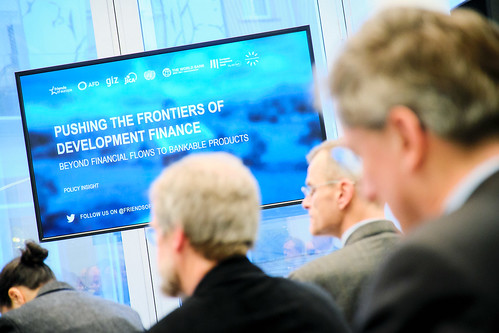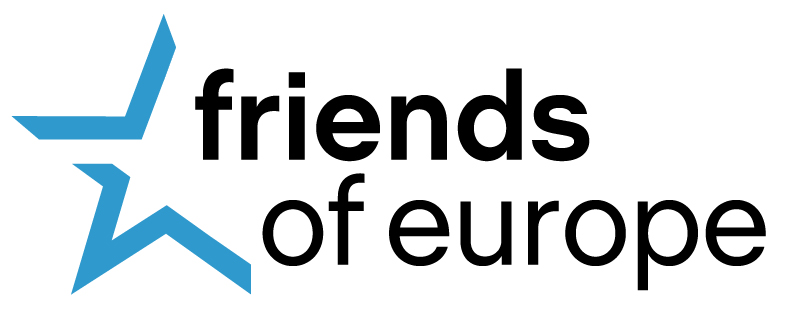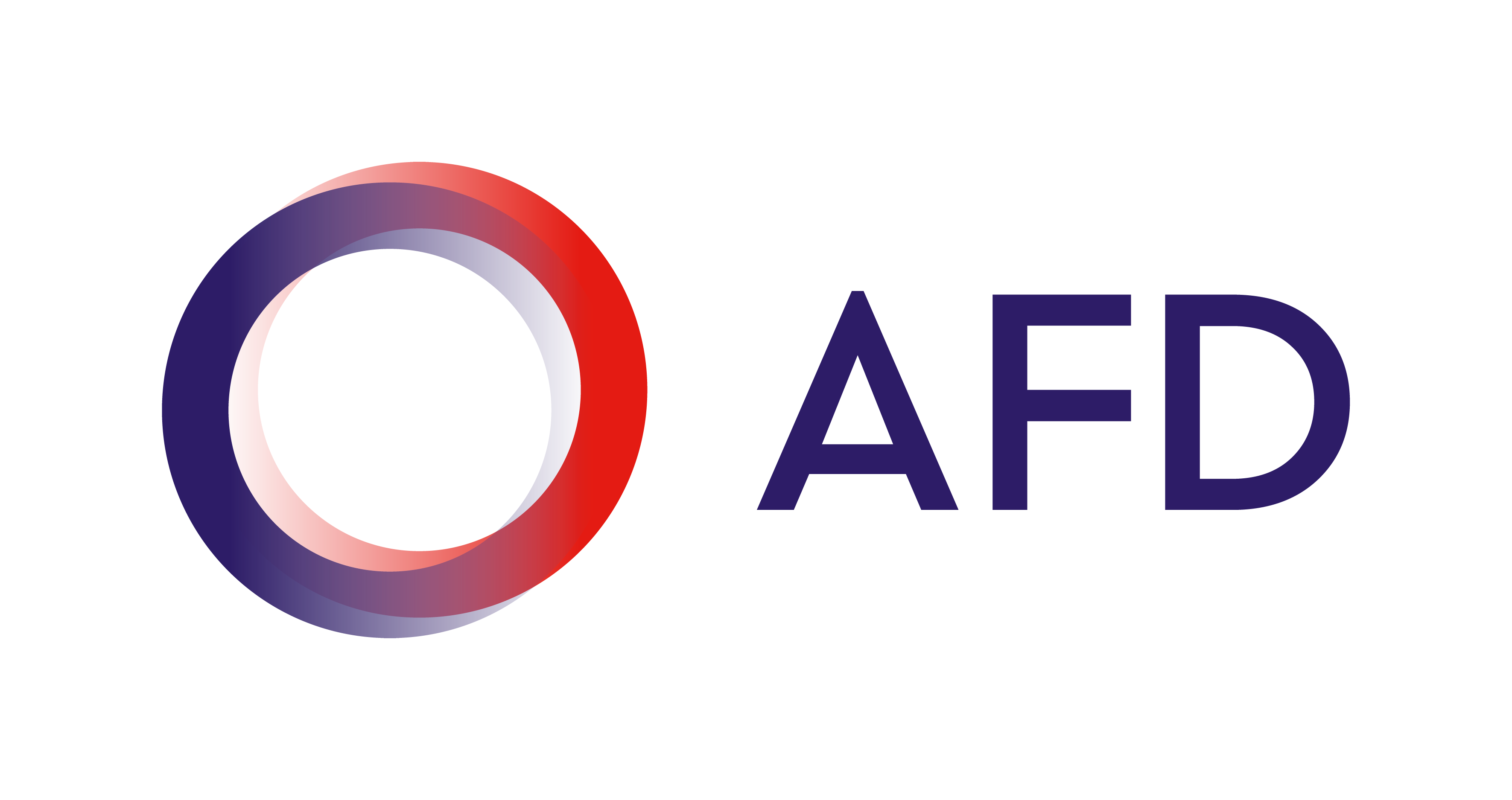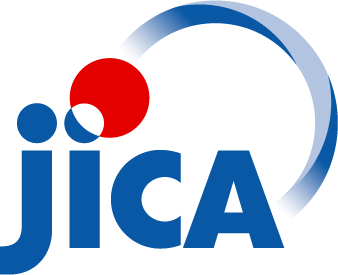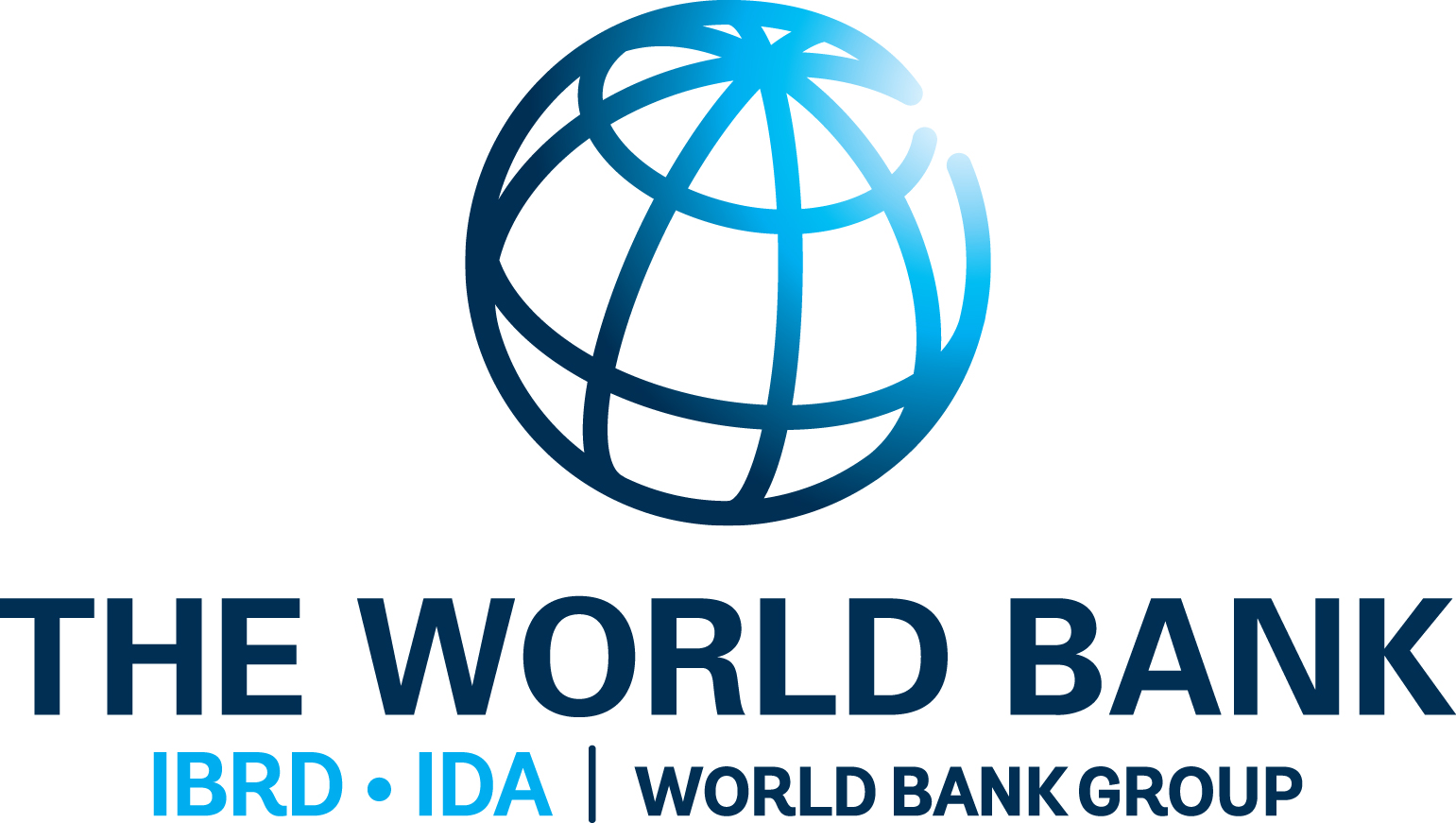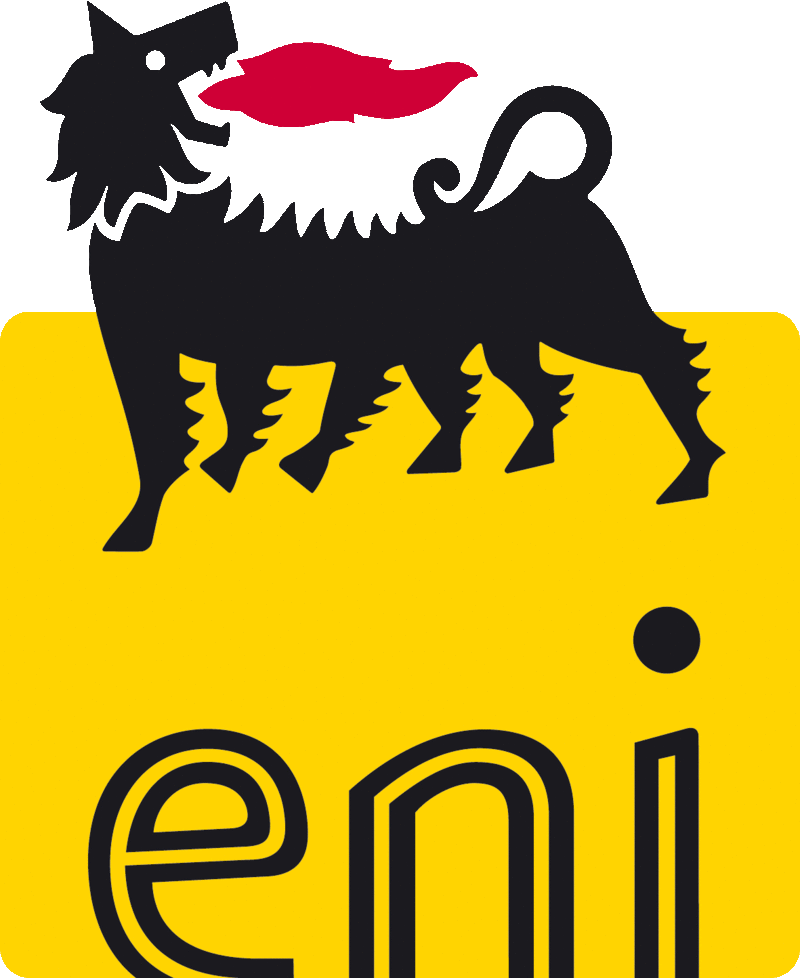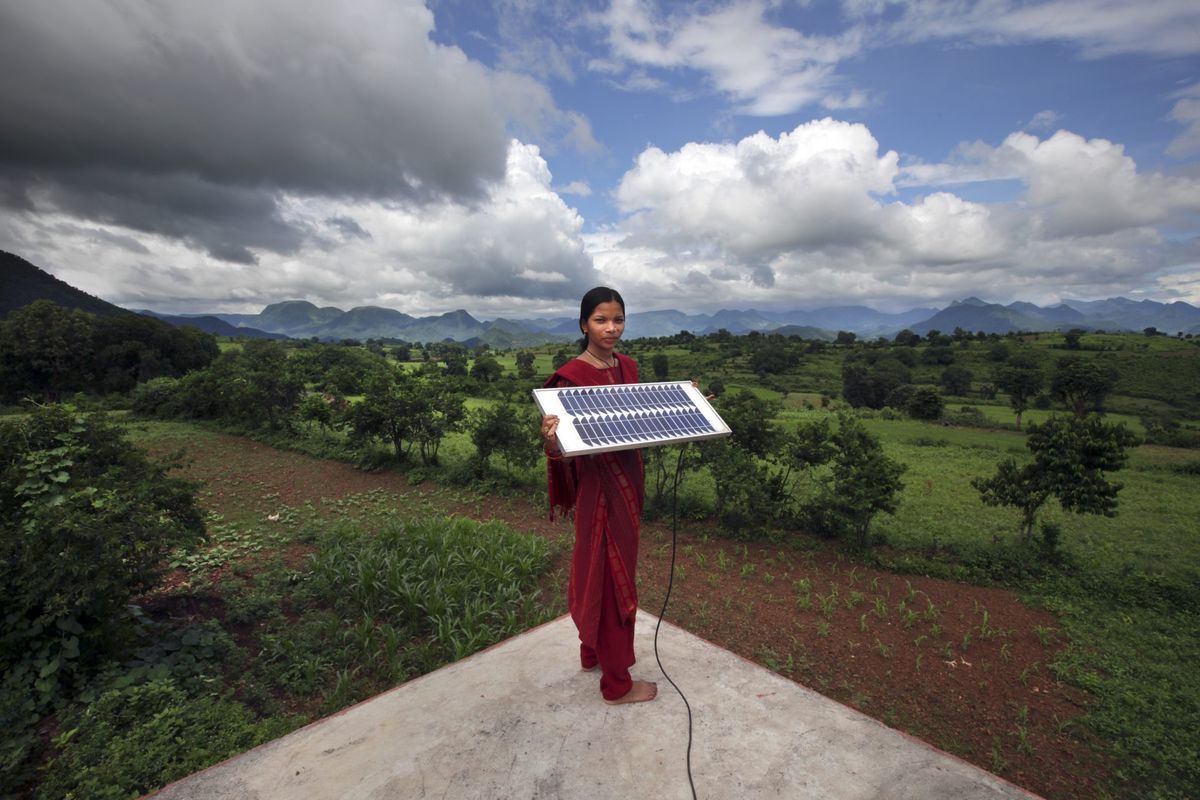
Summary
Investors are increasingly flocking to financial products that offer social as well as monetary returns, a Friends of Europe event has heard.
With an estimated $6tn a year required over the next 15 years to achieve the UN’s 2030 sustainable development goals – and the world having reached “peak overseas development aid” – institutional investors and private equity firms are having to get creative, said Shada Islam, Director for Europe and Geopolitics, who moderated the event.
The European Investment Bank (EIB) uses ‘Sustainability Awareness Bonds’ to help fund SDG-themed projects, helping to alleviate the biggest risk that private investors face in Africa: state-owned enterprises defaulting on their payments. “The smart, targeted use of public funds to leverage private investment is key,” says Richard Amor, Head of the EIB’s Institutional and Implementation Unit.
Private equity firms such as KOIS Invest are using ‘development’ or ‘humanitarian impact bonds’ to help funnel money loans (via local banks) to small businesses or female-run enterprises. “It’s not about the profits of the assets, but the impact on the ground and putting a monetary value on that,” said Béatrice Delperdange, Head of Business Development at KOIS Invest.
However, there is not a “business case” for all SDGs, said Thomas Förch, Senior Technical Expert for Financial Sector Development and Insurance at the Deutsche Gesellschaft für Internationale Zusammenarbeit, calling on governments to continue playing a role in big infrastructure projects.
Lubna Shaban, Co-Director of Child and Youth Finance International (CYFI), says organisations like hers can help bring together donors, banks, NGOs, governments and other expertise. “If you’ve never heard of us, good,” she says. “We’re doing our job.”
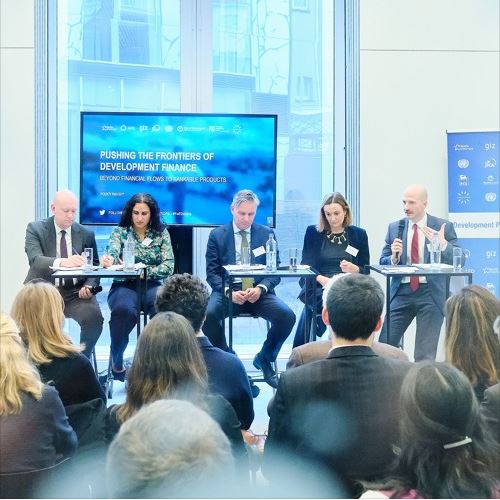
Event recording
Pushing the frontiers of development finance: Beyond financial flows to bankable productsAbout
This event is part of our Development Policy Forum (DPF), which brings together a number of important development actors, including the Deutsche Gesellschaft für Internationale Zusammenarbeit (GIZ), the Agence Française de Développement (AFD), the Japan International Cooperation Agency (JICA), the European Investment Bank (EIB), the United Nations and the World Bank. Reflecting the growing role of the private sector in development, the DPF has now welcomed Coca-Cola and Eni to the forum. The DPF contributes to the global and European conversation on inclusive development. Through its activities and publications, the DPF reflects the rapidly-changing global debate on growth and development and seeks to encourage a multi-stakeholdered, fresh, up-to-date thinking on the multiple challenges facing the development community.
IMAGE CREDIT: CC/Flickr – DFID – UK Department for International Development
Schedule
UN estimates suggest that some $6 trillion is needed annually over 15 years to achieve the Sustainable Development Goals. Agenda 2030 requires conventional development assistance to be buttressed by a paradigm shift in development finance involving creative new ways to inject private capital. Governments are starting to re-evaluate microcredit’s impact, along with the increased use of simple cash grants and Conditional Cash Transfers (CCTs). Impact investing is growing rapidly as investors look for ways to generate benefits for society alongside financial returns. Among ground-breaking financial products like Sustainability Awareness Bonds, the European Union’s 2018 Action Plan on Financing Sustainable Growth will help unlock private investment in sustainable projects.
- What else should be done both to encourage such investment while mitigating developing countries’ debt vulnerabilities?
- What role does the EU have to help tap this potential and leverage smarter, quicker and effective financing for development?
- How do we encourage investors and the private sector to put forward innovative categories for sustainable investment in their portfolios?
Speakers
Richard Amor
Head of the Institutional and Implementation Unit, Global Partners Directorate at the European Investment Bank (EIB)
Béatrice Delperdange
Head of Business Development at KOIS Invest
Thomas Förch
Senior Technical Expert for Financial Sector Development and Insurance at the Deutsche Gesellschaft für Internationale Zusammenarbeit (GIZ)
Marjeta Jager
European Commission Deputy Director-General for International Cooperation and Development
Lubna Shaban
Co-Director of Child and Youth Finance International (CYFI)
Moderated by
Shada Islam
Managing Director at New Horizons Project
Speakers

Head of the Institutional and Implementation Unit, Global Partners Directorate at the European Investment Bank (EIB)
After joining the EIB over 10 years ago, Richard Amor worked on a number of landmark project finance transactions, most notably in Africa, where he focused on projects relating to renewable energy, telecoms, infrastructure and industrial sectors. More recently, Amor was part of the task force within the EIB that was responsible for the creation and design of the European Fund for Strategic Investments (EFSI), the joint initiative between the EIB and the European Commission. Through its presence in Africa, the EIB seeks to enable and enhance entrepreneurship and innovation, create new jobs and quality outlets for youth, in addition to promoting the best practice among financial institutions.

Head of Business Development at KOIS Invest
Béatrice Delperdange has extensive experience in investment banking and business development, having accumulated it over the time she spent in Tier-1 investment banks. At KOIS Invest, a private equity firm, she works to provide private equity, debt and mezzanine capital to social entrepreneurs in the sectors of healthcare, education and living environment. KOIS Invest also promotes the development of the impact bond mechanism by structuring, placing and managing social impact bonds (SIBs), development impact bonds (DIBs) and humanitarian impact bonds (HIBs). Prior to KOIS, Delperdange was managing director at Deutsche Bank and chief executive officer of a large not-for-profit manufacturing company in Belgium that creates jobs for workers with disabilities.
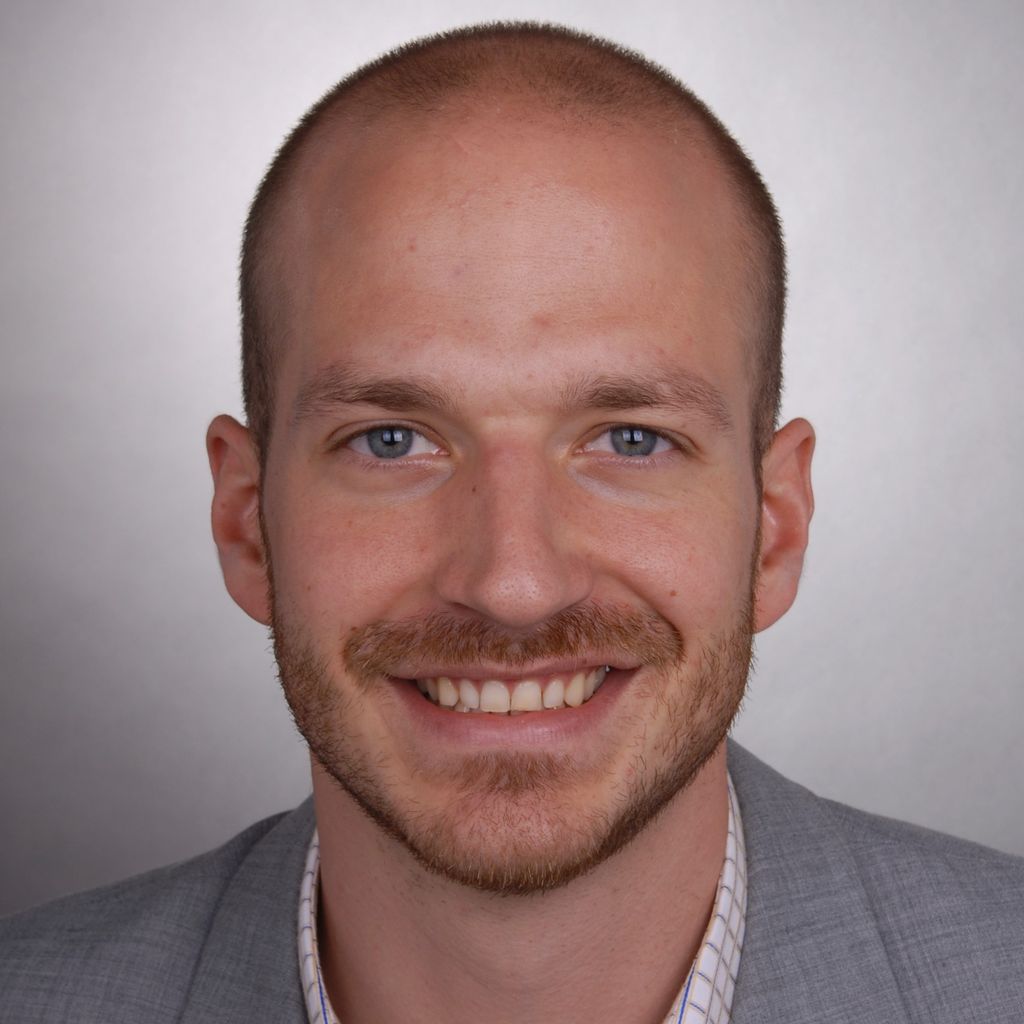
Senior Technical Expert for Financial Sector Development and Insurance at the Deutsche Gesellschaft für Internationale Zusammenarbeit (GIZ)
A financial market professional with in-depth experience ranging across regulation, supervision, banking and microfinance, Thomas Förch advises projects around the world and develops GIZ´s offer of services in the area of “leveraging private sector investments”. Within the GIZ, he previously worked as Head of a SME Finance Project in Myanmar; and as an advisor to Bank Indonesia (Central Bank of Indonesia), among other responsibilities. Prior to joining GIZ, Förch worked in the financial services industry in Switzerland with a focus on investments in emerging markets.
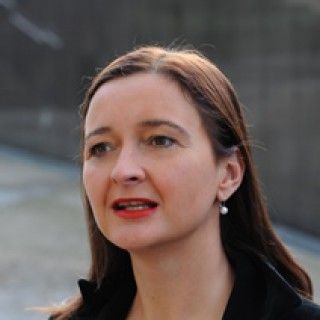
European Commission Deputy Director-General for International Cooperation and Development
A barrister by trade with over 15 years of experience in the European Commission, Marjeta Jager has worked in a wide range of fields, of which security, energy and transport are inclusive. In her current position, Jager is notably responsible for the European External Investment Plan (EIP), an initiative launched in 2017 and designed to attract more investment, particularly from businesses and private investors in neighbour countries and in Africa. It is expected to leverage €44 billion of investment through an EU input of €4.5 billion. Prior to joining the Commission, Jager worked for over a decade on the accession of Slovenia to the EU for the Ministry of Foreign Affairs and was the first Slovenian Ambassador to the EU.
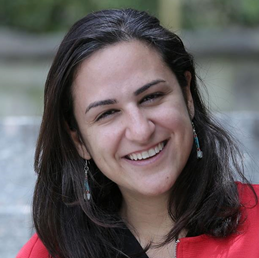
Co-Director of Child and Youth Finance International (CYFI)
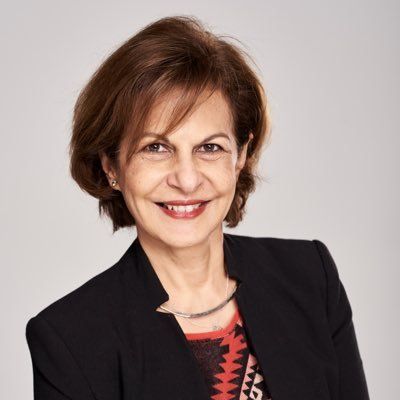
Managing Director at New Horizons Project
Activities
Europe-China Forum
Next event In person & livestreamed

- Area of Expertise
- Global Europe
Trading tariffs and trade as a geopolitical tool
Past event

- Area of Expertise
- Global Europe
From aid to investment: shaping Europe's global role in a changing world
Past event Online

- Area of Expertise
- Global Europe
Future Africa-Europe High-Level Forum
Past event IN PERSON & ONLINE

- Area of Expertise
- Global Europe
Trump's betrayal of the world's poor is Europe's opportunity
- Category
- Frankly Speaking
- Author
- By Giles Merritt
Policy Voices | #Throwback: UNRWA’s Jonathan Fowler on Gaza: “It is a…
- Category
- Podcast
- Area of Expertise
- Global Europe
DRIVE Impact Initiative final report
- Category
- Event Reports
- Area of Expertise
- Global Europe
Europe’s blackouts call for a NATO-level response
- Category
- #CriticalThinking
- Author
- By Maurizio Geri

- Area of Expertise
- Global Europe

- Area of Expertise
- Global Europe

- Area of Expertise
- Global Europe

- Area of Expertise
- Democracy
Continue
the debate on
- Debating Europe
